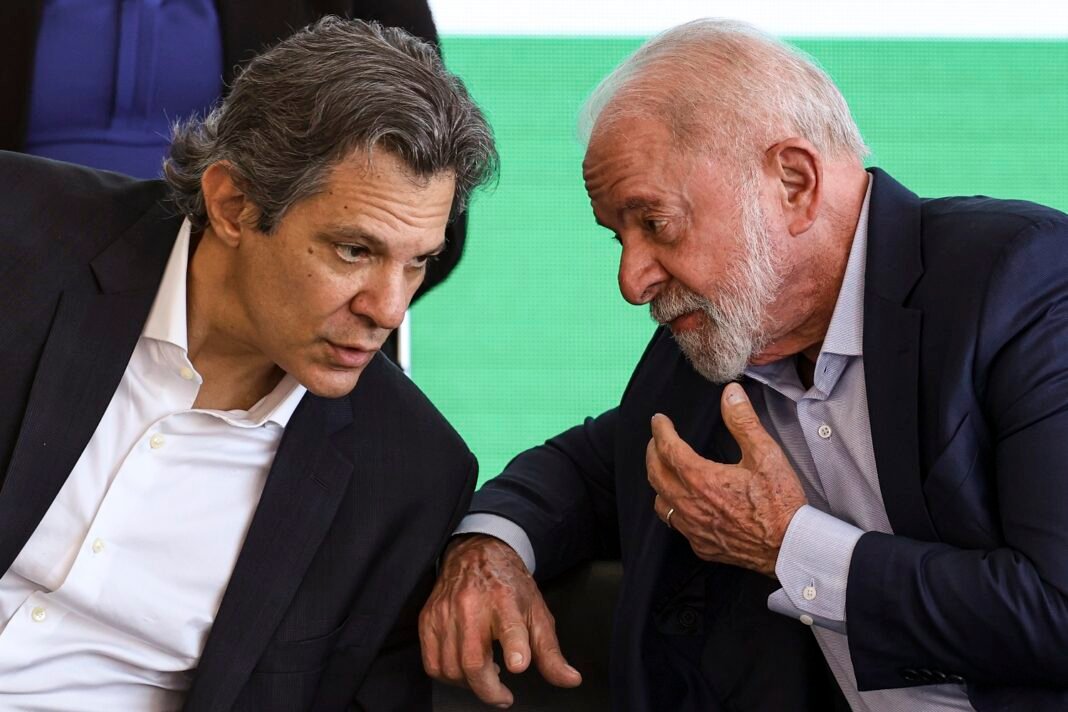Amid growing tensions between the Executive and Congress, President Lula’s government faces a series of political and fiscal challenges. A key point of contention is the increase in the Tax on Financial Transactions (IOF), which was overturned by Congress but later suspended by the Supreme Court (STF), pending a conciliation hearing. The government argues that the measure is essential to balance public accounts, while Congress points to its economic impact. At the same time, Lula has decided not to sanction a bill that would expand the number of federal representatives.Behind the scenes, spending cuts are being considered, despite public resistance to austerity. To shift focus and reshape its narrative ahead of 2026, the administration is abandoning the slogan “Union and Reconstruction” in favor of one centered on “social justice,” reflecting both internal priorities and the need to rebuild political support.
This Content Is Only For Subscribers
To unlock this content, subscribe to INTERLIRA Reports.
IOF
The government’s economic team, led by Finance Minister Fernando Haddad (PT), announced at the end of May a presidential decree increasing the IOF levied on credit transactions, mainly for companies. However, the Legislature approved the repeal of President Lula’s decrees that raised the tax. By overturning the decrees, Congress imposed a revenue loss of around R$10 billion this year and over R$20 billion in 2026, according to estimates from the Ministry of Finance. The President’s team, however, argues that the measure is essential to adjust public accounts and has therefore appealed to the Supreme Court, questioning whether the Legislature’s decision violates the Federal Constitution.
Conciliation Hearing
On Friday (04/07), Supreme Court Minister Alexandre de Moraes suspended the effects of all decrees related to the Tax on Financial Transactions (IOF) and ordered a conciliation hearing between the government and Congress on the matter. The hearing was scheduled for 15 July, in the Court’s plenary session in Brasília. With this, all decrees by President Luiz Inácio Lula da Silva (PT) that increased the tax are suspended, as well as the legislative decree that overturned the presidential decision.
Spending Cuts
Publicly, President Lula continues to avoid, if not oppose, a discourse of greater austerity in government spending. Behind the scenes, however, spending cuts are no longer a taboo topic, and Lula’s allies are advocating for some real reductions in expenses, within the constraints of an administration focused on social programs, microcredit facilities, and other spending-heavy initiatives. The cuts would likely target foreign trips and ministries with smaller budgets. Still, there is internal resistance to this shift in direction.
No Increase in Deputies
President Lula has decided not to sanction the complementary bill approved in June by Congress that increases the number of federal representatives from 513 to 531. This stance has been expected since the beginning of the debate, when Congress approved the measure. Having chosen not to sanction the bill to turn it into law, Lula is now considering two options: vetoing it or simply ignoring it and allowing Congress to enact it independently. The increase in deputies’ number would cost R$65 million per year (according to Congress’s estimates). Lula’s decision not to agree is not expected to strain relations with Congress, and is supported by those opposing the expansion.
New Slogan
Under growing pressure due to the crisis with Congress over the Tax on Financial Transactions (IOF), the government is seeing the Centrão bloc distance itself, undermining both governability and the prospects for building an alliance around Lula (PT) for 2026. In an attempt to shift focus, the Planalto Palace has decided to remove the slogan “Union and Reconstruction,” a hallmark of Jair Bolsonaro’s post-government transition, and replace it with a message centered on “social justice.” The change aligns with what Lula and ministers such as Fernando Haddad (Finance) have emphasized in recent weeks and also aims to test the narrative for the pursuit of a fourth presidential term.
Analysis:
President Lula’s administration is facing a complex political environment marked by increasing friction with Congress, especially the Centrão bloc, which is essential for securing legislative support. The clash over the IOF tax increase reflects a broader power struggle: while the Executive defends the measure as necessary for fiscal balance, Congress reacted by overturning the decrees, citing concerns about the economic burden. The Supreme Court’s decision to suspend both the government and congressional actions and call for a conciliation hearing points to an institutional deadlock that raises important questions about the limits of executive and legislative authority.
Despite Lula’s public resistance to austerity, the internal debate on spending cuts suggests a shift in tone. The government appears to be exploring limited reductions in areas considered less politically sensitive while preserving its social agenda. This balancing act aims to maintain Lula’s credibility with his support base while addressing growing fiscal constraints.
The change in government messaging, replacing “Union and Reconstruction” with “Social Justice,” signals a recalibration of political strategy ahead of the 2026 elections. By highlighting themes aligned with Lula’s traditional rhetoric, the administration seeks to reinforce its identity and regain momentum amid legislative setbacks.
Source: G1, O Globo [1] [2] [3], Valor, Folha de São Paulo [1] [2].




